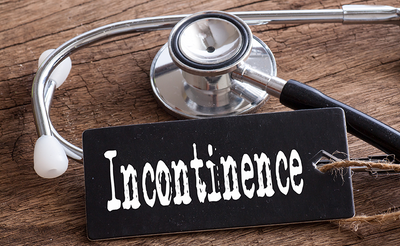If you are suffering from urinary incontinence you may often feel the intense need to void. This happens because your bladder muscles are contracting even when it's not full. People with urine leakage frequently have the urge to urinate and often look for ways to manage it, like incorporating diaper pants for adults as an integral part of your daily life.
There are many urine problem solutions which range from opting for bladder training to having a well-designed diet.
Making lifestyle changes such as cutting down on food products or beverages that can potentially increase urine production can be helpful to a person suffering from urinary incontinence. While it is advisable to limit the consumption of these food items one can also engage in Kegel exercise that helps strengthen your pelvic muscles and improve bladder control. People also use adult disposable diapers or buy good quality adult diapers which serve as one of the frontline helpers in managing urine leakage apart from all the other methods.
A particular diet cannot claim to cure, but tweaking one's diet to include certain nutrients can bring about a change. For example, vitamin D and urinary incontinence have been linked.
Here are some symptoms that you can manage simply by customising your food habits.
What Not To Have!
There are certain things that are known to irritate the bladder such as:
-
Caffeine - It’s a powerful substance that can increase bladder activity and worsen incontinence. Caffeine is naturally found in beverages like coffee, tea, cocoa beans, and cold/energy drinks. It is said that more than a certain amount of it can cause a reason for worry. People who consume a lot of it must try and reduce it slowly over a few weeks. While taking care of your liquid intake you must also make sure that you are using adult disposable diapers in order to avoid any embarrassing leak accidents.
-
Alcohol - It is clinically proven that alcohol can act as a bladder stimulant and may induce a greater frequency of urination. Quitting alcohol and smoking can help better bladder retention. better urinary retention causes the slow healing of incontinence.
-
Artificial sweeteners - These sweeteners often contain chemicals such as sodium saccharine, acesulfame potassium, and a little aspartame that can cause certain negative effects on bladder function. To avoid any negative effects one should keep away from such sweeteners and keep your bladder function in control. People also tend to use diaper pants for adults to better manage these negative effects that lead to enhancing the problem of urine leakage.
Furthermore, one should also avoid or minimalize the consumption of -
-
Milk & milk products
-
Honey
-
Tomatoes & tomato-based products
-
Citrus juices & fruits
-
Corn syrup
-
Over spiced foods
By avoiding these foods one may be able to manage urine leakage better and also improve their bladder function. Apart from this, you must also buy adult diapers that can be worn during the day to carry on your active lifestyle.
What To Have!
Water is the best beverage. Adding different fruit juices like lemon, grape, cranberry, cherry, and apple are a few of the best thirst quenchers that do not irritate the bladder. Furthermore, cranberry and cherry juices might even help control urine odour.
Foods suggested for good bladder health are -
-
Fruits to maintain the correct water balance: Bananas, apples, grapes, coconut, watermelon, strawberries, blackberries, etc.
-
Vegetables to cover all the vitamins and minerals: Asparagus, broccoli, cucumbers, kale, carrots, celery, lettuce, and peppers, etc.
-
Meats to gain proper protein for a nutritious diet: Fish, chicken, and even eggs.
-
Fibre-rich food: Foods high in fibre are also very important as they can help prevent constipation, which tends to put additional pressure on your bladder. Some fibre-rich foods that you can eat are lentils, beans, raspberries, artichoke, barley, bran, oats, etc. Dry fruits also must have to improve one's bladder health.
Various studies have found that Vitamin D deficiency causes worsening of incontinence. Thus, it is recommended one get their supply of Vitamin D from fish, milk, eggs and yoghurt.
Vitamin D: The Last Stand Against Incontinence
Various studies have now found that Vitamin D deficiency causes urinary incontinence as well.
Vitamin D is fat soluble, so it is absorbed and stored in the fat cells of one’s body. It then facilitates calcium absorption, affects heart health, blood sugar levels, and immunity. It also plays a vital role in strengthening muscles. Its deficiency can thus significantly weaken your muscles, including pelvic floor muscles. This is what causes links to Vitamin D and urinary incontinence.
-
Sources of Vitamin D: dairy products, orange juice, soy milk, beef liver, cereals, cheese, cod liver oil, mushrooms, egg yolk, shrimps, and fatty fish, like tuna, mackerel, and salmon.
-
Another effective way of getting Vitamin D is by going out and spending enough time in the sun, which a lot of people do not get to do these days due to their busy schedules.
Symptoms of Vitamin D deficiency:
-
Feeling feverish, fatigued, depressed, and tired
-
Getting infected frequently
-
Feeling back pain and muscle pain
-
Having impaired wound healing
-
Losing hair
If you or anyone you know is going through any of the symptoms listed above, consult your doctor and determine the root cause behind it. Mostly, urinary incontinence can be treated simply, by treating the underlying cause—in this case taking Vitamin D supplements.
While taking these supplements or switching to a proper nutritious diet may not be a cure for incontinence, but can certainly help further your urinary incontinence treatment. This is especially important because of the link between obesity and incontinence.
The Link Between Obesity and Incontinence
Due to poor food choices, irresponsible eating habits, and lack of physical activity, many people tend to gain weight uncontrollably. Besides, there are certain health issues that can also lead to weight gains, such as osteoarthritis, diabetes, high blood pressure, heart disease and stroke, and gallbladder disease. So, obesity is not just a result of overeating, which makes it much more problematic than it seems.
In an obese person, the fat around the abdominal area starts to put a strain on the bladder or urethra, which might also lead to stretching of the pelvic floor muscles. This not only weakens the muscles but also leads to chronic pain in the bladder, thereby affecting one’s bladder control, resulting in urinary incontinence. Not just urinary incontinence, passing wind unexpectedly is also an issue related to obesity or weight gain.
Here are some important notes on managing incontinence caused by obesity:
-
The most common form of urine leakage caused by obesity is Stress urinary incontinence. This occurs when the bladder is subjected to pressure due to sudden physical movement or activity, for e.g. sneezing, laughing, or heavy lifting. It is advised that people suffering from urinary stress incontinence always wear adult diaper pants in order to prevent messy incidents.
-
For patients who suffer from restricted mobility due to uncontrollable weight gain, tape adult diapers are an ideal way to manage incontinence as they are easy to wear as well as to take off. You can find tape adult diapers as well as pant adult diapers online.
-
In addition, there are certain measures that someone suffering from incontinence due to obesity can take in order to minimize its impact, like eating the right foods, not overeating, and exercising regularly, especially running.
To conclude, changing one’s diet can be highly beneficial for the treatment and management of incontinence. However, it is best to consult with your doctor before adding or changing your diet and other supplements. Additionally, consulting your doctor for proper adult disposable diapers is also a good practice, as an informed recommendation, you are able to buy adult diapers that are best suited to your case and situation.




